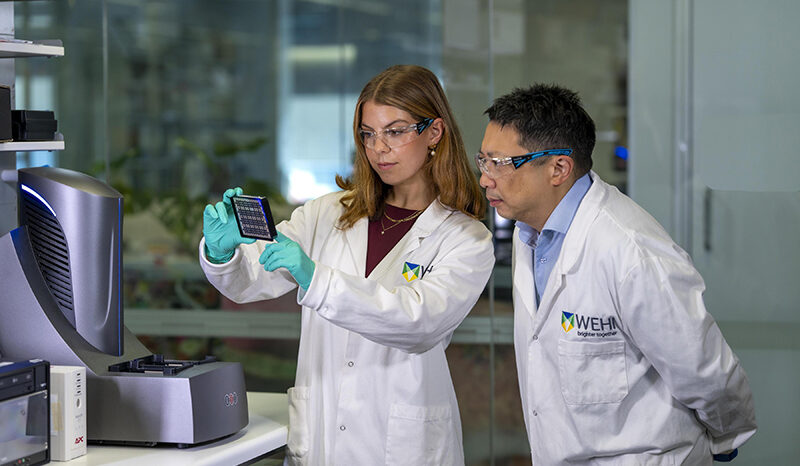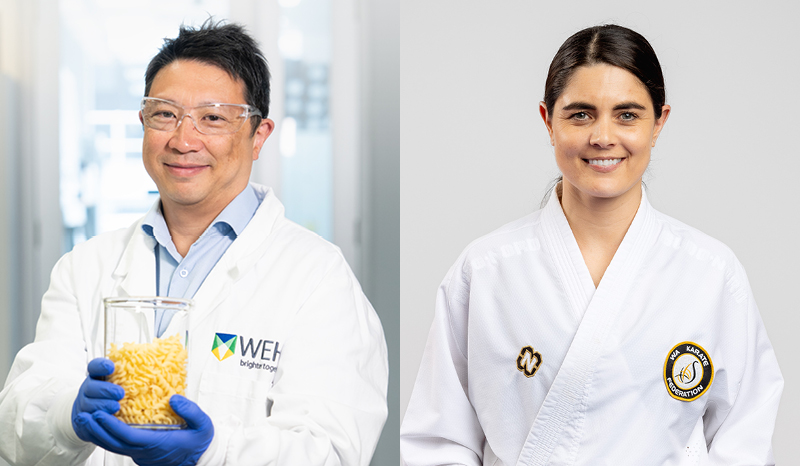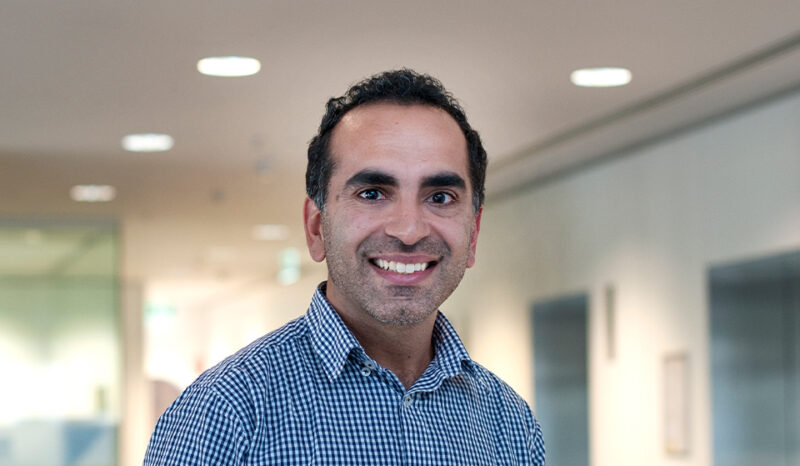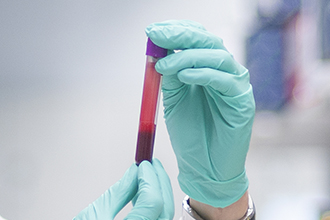McKelvie P, Singh M, Iser DM, Prince HM, Bazargan MA, Luciani F, Goodnow C, Tye-Din JA. Refractory coeliac disease or something else?. Pathology. 2026;58(1):10.1016/j.pathol.2025.08.004
Thomson RL, Martin G, McGorm KJ, Spelman T, Craig ME, Penno MAS, Wentworth JM, Colman PG, Davis EA, Haynes A, Huynh T, Soldatos G, Tye-Din JA, Oakey H, Couper JJ. Perceived stress in mothers of children with and without islet and coeliac autoimmunity in the ENDIA study. Diabetologia. 2026;69(2):10.1007/s00125-025-06584-3
Halmos E, Fitzpatrick J, Gibson P, Hardy M, Tye-Din J. NO CHANGE IN CIRCULATING CYTOKINES IN ACTIVE CROHN’S DISEASE OR HEALTHY CONTROLS DURING HIGH AND LOW EMULSIFIER DIETS IN BLINDED FEEDING STUDIES. Gastroenterology. 2026;170(3):10.1053/j.gastro.2025.10.115
Halmos E, Fitzpatrick J, Gibson P, Hardy M, Tye-Din J. NO CHANGE IN CIRCULATING CYTOKINES IN ACTIVE CROHN’S DISEASE OR HEALTHY CONTROLS DURING HIGH AND LOW EMULSIFIER DIETS IN BLINDED FEEDING STUDIES. Inflammatory Bowel Diseases. 2026;32(Supplement_1):10.1093/ibd/izag006.128
Moscatelli OG, Hardy MY, Tye-Din JA. Reply to Núñez et al. Gastroenterology. 2025;:10.1053/j.gastro.2025.12.028
Tye‐Din JA. Rethinking Coeliac Disease Diagnosis: Reflections on the 2025 ESsCD Guidelines. United European Gastroenterology Journal. 2025;13(10):10.1002/ueg2.70137
D’heedene M, Tye-Din JA, Wauters L. Persistent symptoms and enteropathy in coeliac disease: clinical considerations and therapeutic opportunities. Best Practice & Research Clinical Gastroenterology. 2025;79:10.1016/j.bpg.2025.102081
Moscatelli OG, Russell AK, Henneken LM, Fothergill L, Motyer A, Reid H, Rossjohn J, Bryant V, Anderson RP, Hardy MY, Tye-Din JA. Blood-Based T-Cell Diagnosis of Celiac Disease. Gastroenterology. 2025;169(6):10.1053/j.gastro.2025.05.022
Haynes A, Smith GJ, Tully A, Mellor B-R, Penno MAS, Craig ME, Wentworth JM, Huynh T, Colman PG, Soldatos G, Anderson AJ, McGorm KJ, Couper JJ, Davis EA, Barry SC, Hamilton-Williams EE, Harrison LC, Kim KW, Morahan G, Oakey H, Rawlinson WD, Thomson RL, Tye-Din J, Vuillermin PJ. Longitudinal Continuous Glucose Monitoring Study in Young Children With Presymptomatic Type 1 Diabetes Followed in the Environmental Determinants of Islet Autoimmunity (ENDIA) At-Risk Cohort Study. Diabetes Care. 2025;48(10):10.2337/dc25-0821
Glennan C, Chapman K, Wienholt L, Tye-Din JA. Variation in coeliac disease serology practices may impact biopsy-free diagnosis in Australasia. Pathology. 2025;57(5):10.1016/j.pathol.2025.02.012






